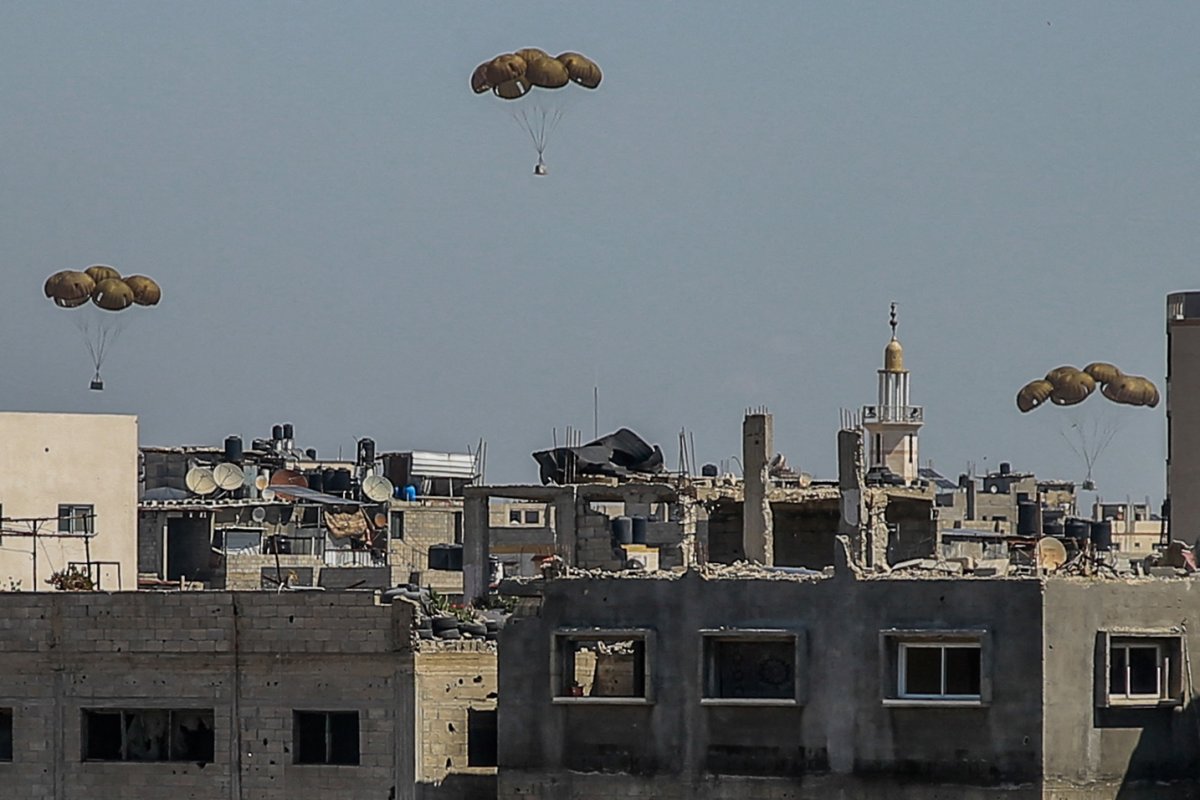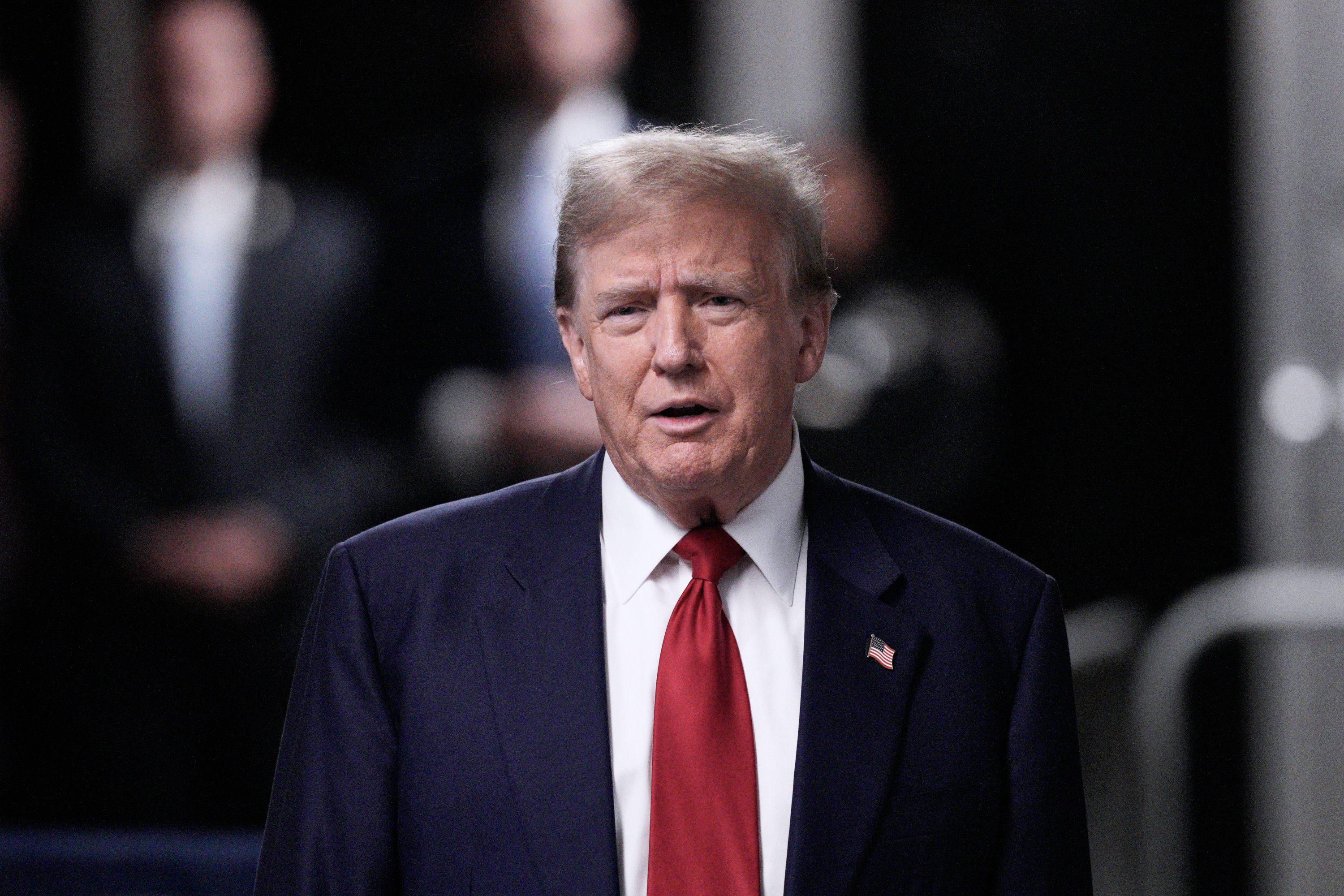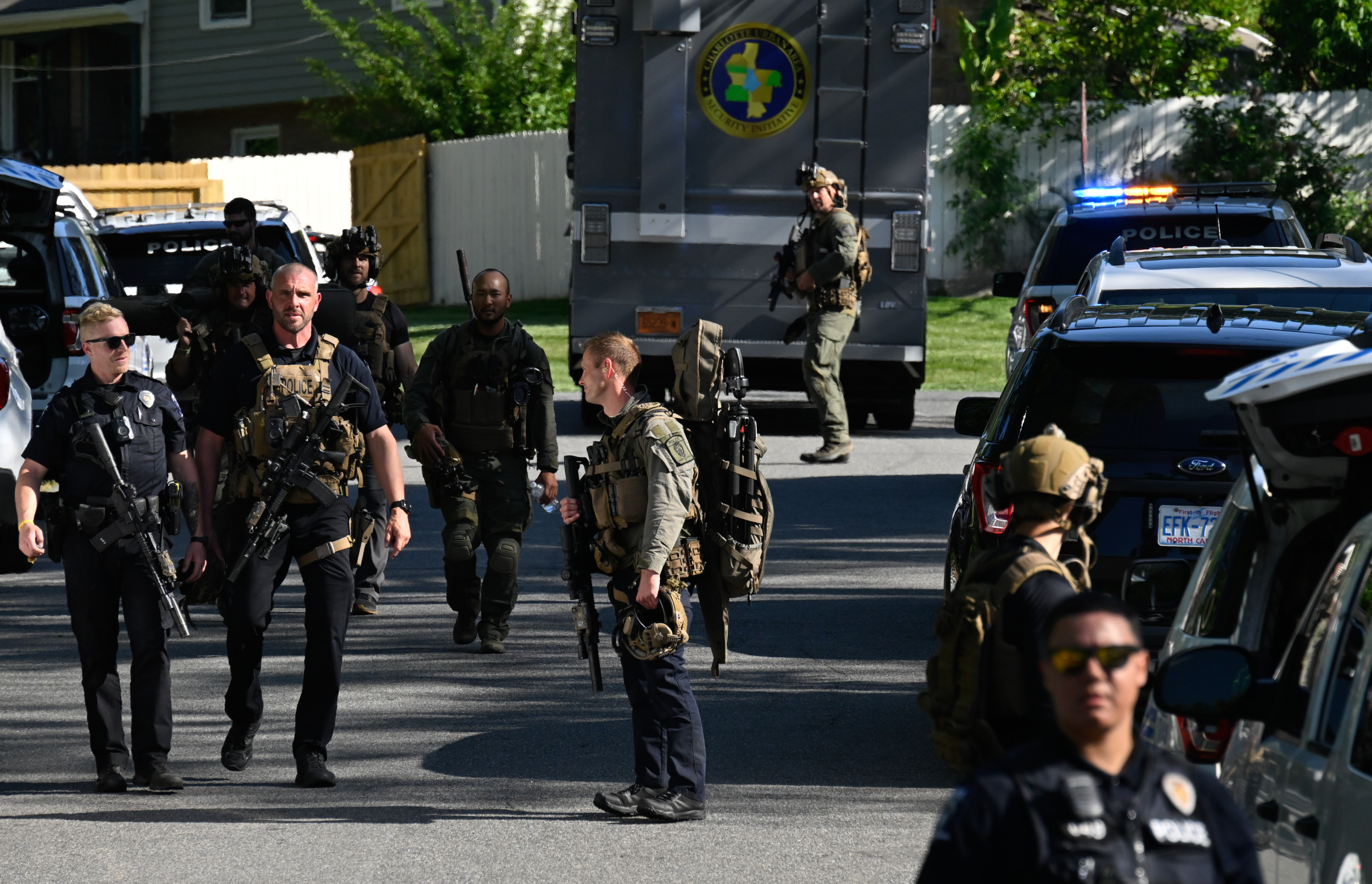Gaza's humanitarian crisis has reached unprecedented levels.
Israel's assault on the territory has killed over 31,000 Palestinians so far, with hundreds of thousands more at risk of dying from starvation and disease. Gaza's entire population of more than 2 million people faces hunger, a U.N.-backed report said recently.
Even the Biden administration, which has taken longstanding U.S. support of Israel to a new level, has started to change its tune in public.
Vice President Kamala Harris called recently for an "immediate" temporary ceasefire of six weeks. And in his State of the Union address, President Joe Biden called on Israel to "allow more aid into Gaza," even announcing the construction of a pier off Gaza's coast to allow for shipping aid by sea.
These acknowledgements of the crisis are welcome, if overdue. But the administration's actions are more important than its words. So far, the U.S. has sent Israel more than 100 separate transfers and bombs and other weapons since October—all without congressional review—and repeatedly vetoed calls for ceasefire in the U.N. Security Council.
In January, the International Court of Justice ruled that Israel is plausibly committing a genocide and that the states of the world are obligated to stop it. The court called on Israel to stop killing civilians and to allow more aid into Gaza.
Instead, Israel is doing the opposite—with Washington's help.
By February, only 98 trucks carrying aid were getting into Gaza each day—50 percent less than in January, when the court made its ruling, and far less than the over 500 a day that got in before the war. Israeli Prime Minister Benjamin Netanyahu openly admitted that his government is restricting civilian aid for military purposes. "If we want to achieve our war goals, we give the minimal aid," he said in January.
Israel is only allowing two points of entry for aid to enter the territory—and subjecting trucks to an onerous level of screening at those two crossings. As Save the Children's president Janti Soeripto told CNN, "I've never seen a supply chain that ought to be so simple be so complicated. The level of barriers being put in place to hamper humanitarian assistance; we've never seen anything like it."

U.N. World Food Programme worker Suzanne Fenton wrote similarly about how 21,000 metric tons of food are languishing in the agency's warehouses in Egypt. "The food is here," she said. "We would be able to get more in if there were more border crossings. I feel like screaming it across the border so everyone in Gaza knows we are here, we are ready."
It's not just food. Soeripto reported that sleeping bags were kept out of Gaza because they had zippers, that toys were rejected for being packaged in a wooden box rather than a cardboard one, and that sanitary pads were turned back because a nail clipper was included in the hygiene kit.
When Israel identifies items like these that it wants to keep out of Gaza, officials send the trucks carrying them back to the rear of the line, where they will need to wait to get inspected again.
Instead of using his leverage and pressuring Israel to simply let this aid through, President Joe Biden is playing games.
Following the Jordanian military, the Pentagon has begun air dropping food in Gaza. But humanitarian aid experts argue that air drops require a high cost—including highly trained personnel—while delivering a low volume of food. And some of the dropped food has even killed the people it landed on.
And that humanitarian pier? The Pentagon said it will take two months to build, but Gaza needs food now. And the U.S. and partner governments supplying aid by sea announced that their "efforts will be closely coordinated with the Government of Israel"—the one putting up hurdles against aid in the first place.
Worse still, the U.S. has followed Israel's lead and suspended all funding to UNRWA, the U.N. agency charged with providing for the humanitarian needs of Palestinians refugees—accepting at face value an unsubstantiated Israeli claim that 12 individuals among 13,000 UNRWA employees took part in the Oct. 7 attacks. More than 18 other countries followed suit, undermining the only agency that can possibly meet Gaza's needs.
If President Biden was serious about saving Palestinian lives, he would follow the lead of the Dutch, Italian, and Spanish governments and stop sending weapons to Israel. He'd follow Canada, Sweden, the European Union, and Australia in restoring funding to UNRWA. And he'd follow most of the world in supporting ceasefire resolutions at the U.N. and pushing Israel to open more border crossings.
Anything less has more to do with the White House trying to tamp down protests because they make the president look bad on the campaign trail. But as long as U.S. policy remains complicit in genocide, those protests should continue.
Khury Petersen-Smith is the Michael Ratner Middle East Fellow at the Institute for Policy Studies.
The views expressed in this article are the writer's own.
Uncommon Knowledge
Newsweek is committed to challenging conventional wisdom and finding connections in the search for common ground.
Newsweek is committed to challenging conventional wisdom and finding connections in the search for common ground.
About the writer
To read how Newsweek uses AI as a newsroom tool, Click here.








